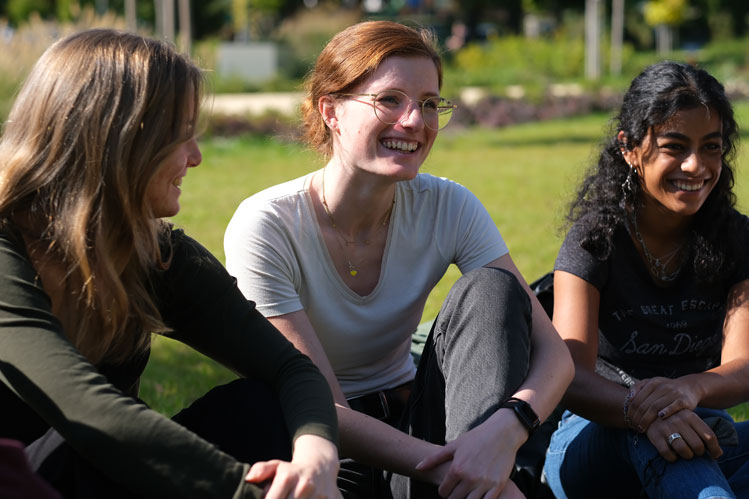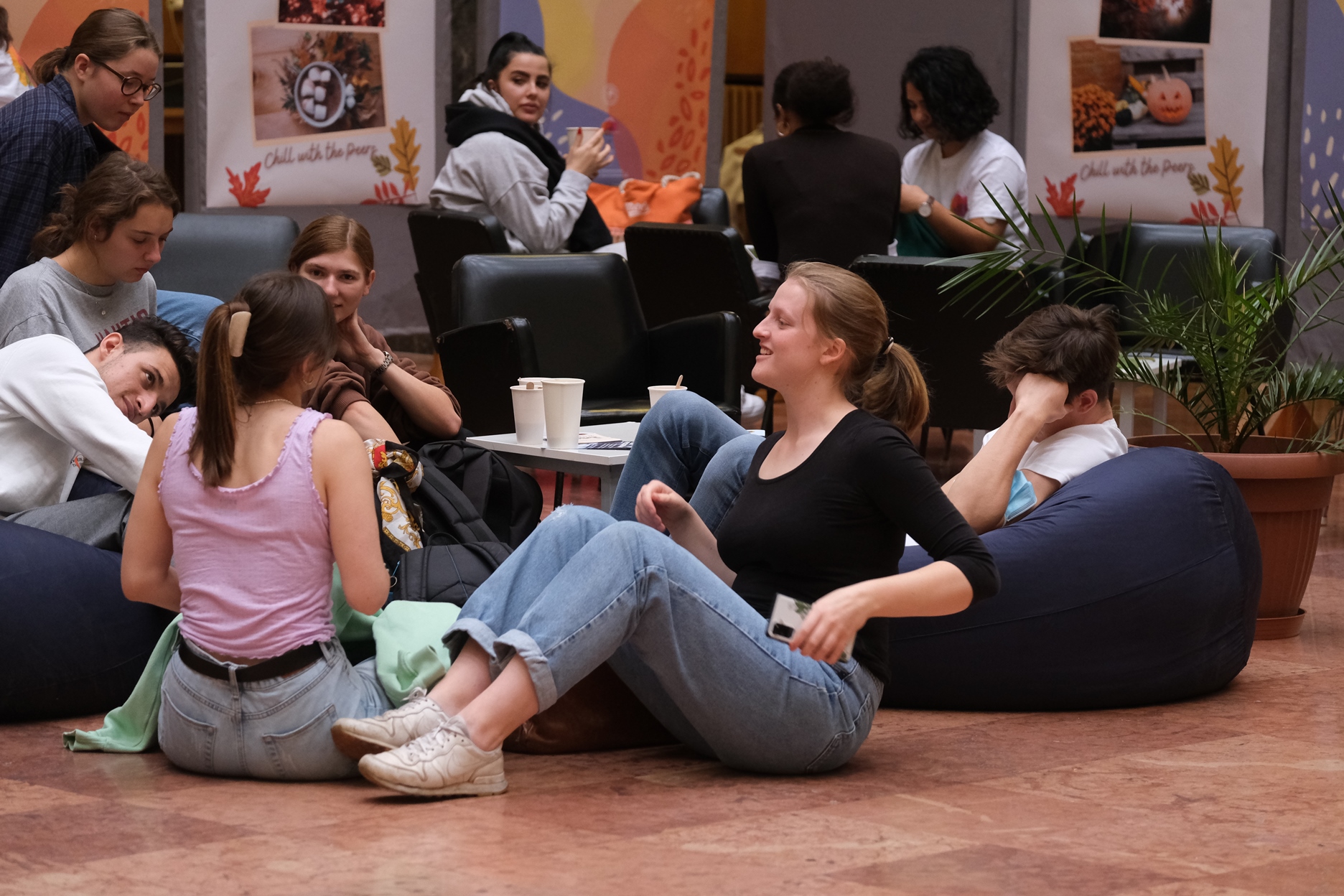The well-being of communities as a core value at the Medical School in Pécs

The key to the future of higher education is a community of people – students, teachers, and colleagues – regardless of where technology takes us. When communities are happy and satisfied, the organisation they run and make it alive is successful. At the University of Pécs Medical School, the long-term development strategy is therefore as much focused on the well-being of faculty communities as it is on improving the infrastructural and educational environment and creating a new learning culture. The concept of Well-Being seeks to improve the lives of students and staff in all areas of life, who, as a true, breathing community, make the faculty’s organisational immune system stronger.
Where training of international standards meets the power of communities
There is no shortage of interconnected communities at the Medical School in Pécs: more than 3,500 students from over 80 countries make it a vibrant, intercultural conglomerate. Besides general medical and dental training, students come here for master’s degrees in biotechnology, PhD studies and specialist medical training in 33 specialties, as well as a truly innovative medical engineering course at the frontier of medicine and engineering.
The marketable knowledge acquired here, and the UP MS degree accredited by the World Federation for Medical Education (WFME), is recognised and respected worldwide, opening the door to a wide range of opportunities for its students. Its international popularity is also reflected in the double anniversary of the Medical School in Pécs in 2024: the English Program will celebrate its 40th and the German Program its 20th anniversary next year.

At the Medical School in Pécs it is well-known that the continuous development of infrastructure, education, community spaces and the building of faculty communities are the key to national and international competitiveness. With this in mind, the long-term strategic plan of the faculty, the PotePillars (the pillars: the Learning Culture Concept, the Infrastructure Concept, the Science and Innovation Concept and the Well-Being Concept) was developed to organically connect to each other to form a whole.
From health planning to physical and mental health
The Well-Being pillar, which focuses on the well-being of the faculty citizens and students, and on relationships within and between groups, aims to make staff and students happy and satisfied, to create conditions for students, teachers and staff that make the institution a liveable second home, providing conditions for well-being at work for all its citizens. It strives to make it a source of pride and joy to work and study at the Medical School in Pécs, to make its citizens feel mentally and physically well, part of a community, and to experience everyday life in a positive way.
All these are not just empty words or well-sounding marketing slogans at the Medical School in Pécs. The Well-Being concept covers a wide range of areas, including the development of aspects of health promotion, faculty goals and tools, faculty sports, the creation of opportunities for healthy lifestyles and diet, the development of community spaces, and the operation and expansion of professionally high-quality services related to mental health needs. The Medical School’s well-being programme has become an integral part of everyday life, from the smallest elements to priority projects, from physical and mental health issues to student support programmes.

The area of physical health promotion focuses on the physical activity of students and staff. To this end, it offers opportunities for students to find physical activities that suit them while they study and for staff to find them while they work. Fruit and muesli days, workshops and lectures raise awareness of the importance of a healthy diet, while regular free screening tests provide an overview of general health.
In the field of mental health, the Health Psychology Counselling team provides support on life management and academic issues, while the life coaching and business coaching services of YourLife and OOKT (Division of Medical Education Development and Communication) help to break the deadlock and make everyday life more efficient. In addition, stress management, mindfulness, autogenic training, burnout prevention, communication and many other training services support students and staff.
The key element of the Well-Being concept of the Medical School in Pécs is the creation of an organisational culture in which the pursuit of mental and physical health is a natural part of everyday life.
With its student support services, it aims to cover the whole spectrum of academic life, so that students always feel they have someone to turn to, to ask questions and to ask for help. One such service is the Peer Program, which has been set up to help new doctors and dentists-to-be to settle into university, navigate the academic system, manage their dormitory affairs, and provide guidance on exams and scholarships. In case of legal problems related to student status, Pécs medical students can rely on the Student Legal Aid Service, while the mentor program provides useful advice on effective learning strategies and methods.

Community-rooted institutional immune system
The Medical School in Pécs is a symbiotic community of students, teachers, and staff, interwoven by a million strands. They build on each other, they are interconnected, inseparable from each other. The key issue is that staff members enjoy working at the Medical School, students enjoy studying and they are all satisfied with their conditions, and the institution is able to respond to their needs.
The main objectives of the Well-Being concept include facilitating opportunities for connection and networking, providing lifelong experiences and creating a sense of well-being. It invites communities to feel ownership of the change and development they experience at the institution.
At UP MS it is well-known that the strength of an institution’s immune system lies in its communities. It is also known that only those higher education institutions that have a true set of mutually supportive, interdependent and caring communities will be sustainable in the long run and will be able to improve continuously.